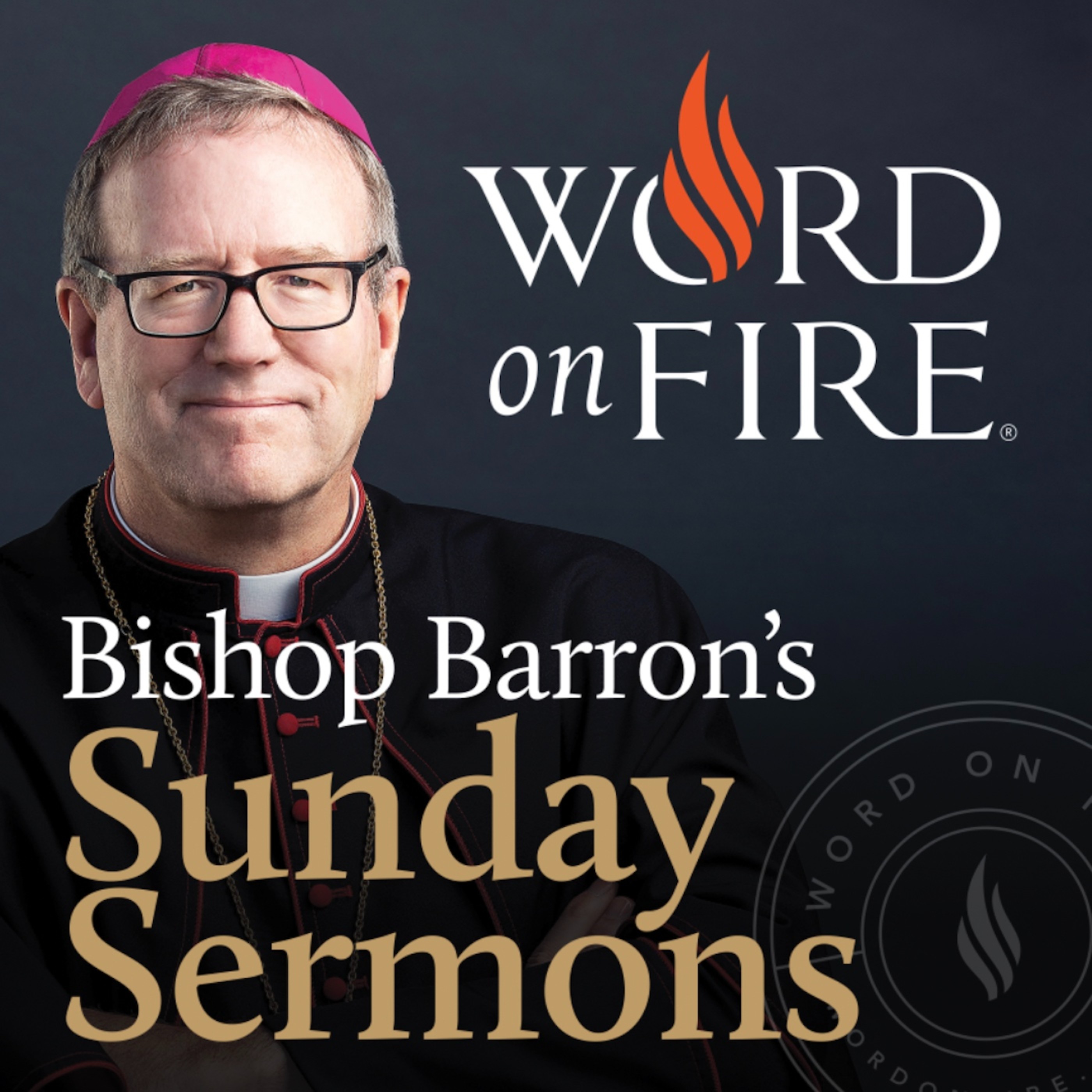

Bishop Barron’s Sunday Sermons - Catholic Preaching and Homilies
Bishop Robert Barron
A weekly homily podcast from Bishop Robert Barron, produced by Word on Fire Catholic Ministries.
Episodes
Mentioned books

Nov 18, 2020 • 14min
God Will Shepherd His People
Our first reading is taken this weekend from the last chapter of the marvelous book of Proverbs. After ruminating for many pages on different aspects of the wise life, the author concludes with a hymn of praise to a smart, industrious, dedicated, and pious wife. I would like to focus on the theology and spirituality of work implied in this passage. Our work makes us collaborators with God, who gives us the privilege of participating in his good governance of the universe.

Nov 11, 2020 • 14min
A Spirituality of Work
Our first reading is taken this weekend from the last chapter of the marvelous book of Proverbs. After ruminating for many pages on different aspects of the wise life, the author concludes with a hymn of praise to a smart, industrious, dedicated, and pious wife. I would like to focus on the theology and spirituality of work implied in this passage. Our work makes us collaborators with God, who gives us the privilege of participating in his good governance of the universe.

Nov 4, 2020 • 16min
God is Looking for Us
Our first reading for this weekend from the book of Wisdom might easily slip past or through your mind, but it shouldn’t. It articulates what is arguably the central principle of biblical revelation: what I would call the primacy of grace. As I have often said, the Bible is not the story of the human quest for God. You can find that in a thousand books of philosophy or spirituality. Instead, the Bible is the story of God’s quest for us. In the spiritual order, it is always God who takes the initiative, God who sets the tone, God who is the master of the conversation.

Oct 28, 2020 • 15min
The Meaning of All Saints Day

Oct 21, 2020 • 15min
The Law of Israel
A careful reading of the Torah, the first five books of the Old Testament, reveals that Israelite identity was determined through three sets of laws: liturgical, ritual, and moral. In Catholicism, the liturgical laws have been sublimated and the ritual laws largely set aside. But what about the moral law? In this case, Thomas Aquinas says, they remain unchanged, for they represent the first principles of the natural law—which is to say, those fundamental instincts that undergird all moral reasoning. In our first reading this week from Exodus, we hear wonderful precepts that continue to this day to shape the moral consciousness of the world.

Oct 14, 2020 • 15min
Between Indifferentism and Tribalism
Our first reading for this weekend is taken from that wonderful middle section of the book of the prophet Isaiah. This particular passage is fascinating and conveys a very important but often unremarked upon biblical truth: Israel is God’s chosen people—of all the nations of the world, God chose the Jews to be his special priestly people—but biblical revelation begins, in fact, with the creation of the world and the whole human race. God chooses Israel to play a priestly and prophetic role for the sake of everyone else and everything else.

Oct 7, 2020 • 15min
Isaiah and God’s Holy Mountain
Throughout the book of the prophet Isaiah, there are references to God’s holy mountain. In the twenty-fifth chapter of Isaiah, we have still another reference to the holy mountain, and this is our first reading for the weekend. The mountain in question is, of course, Mt. Zion—which is to say, the mountain where the temple of the Lord is situated. The temple is the place where Israel comes together in right praise of God. Now, Isaiah is indeed talking about the Mt. Zion and the Temple that existed in his time, but it’s eminently clear from the language of his prophecy that he is also talking about the mystical Mt. Zion, the definitive temple, the place where the right praise of God has come to full expression.

Sep 30, 2020 • 14min
The Lord’s Vineyard
Our first reading, taken from the fifth chapter of the prophet Isaiah, presents a classic trope within the Israelite tradition: the image of the vineyard as a representation of the people Israel. We hear that the author is going to sing a song of his “friend” and his vineyard. What becomes immediately clear is that the friend is the Lord God and the vineyard is the Lord’s holy people. This song is a love story indeed, but one that stresses the demands of love.

Sep 23, 2020 • 14min
What Kind of Person Will You Be?
Our first reading for this weekend is taken from the eighteenth chapter of the book of the prophet Ezekiel—one of the four major prophets, along with Isaiah, Jeremiah, and Daniel. This chapter is worthy of careful attention, for it represents a sort of breakthrough in the moral consciousness of the West. Though some of the prophet’s observations might strike us as obvious, we have to realize how revolutionary this thinking was for the time.

Sep 16, 2020 • 15min
The Strangeness of God
Our very brief first reading is taken from the magnificent fifty-fifth chapter of the book of the prophet Isaiah. This section of Isaiah—which stretches from chapter forty through chapter fifty-five—is one of the most theologically sophisticated and illuminating passages in the entire Old Testament. Nowhere is Israel’s theology of God more fully and clearly developed. And one of the principal points made in this section is that God is incomparable. Over and over again, Isaiah insists that God is radically other; that he is like no other being, even the most exalted.


